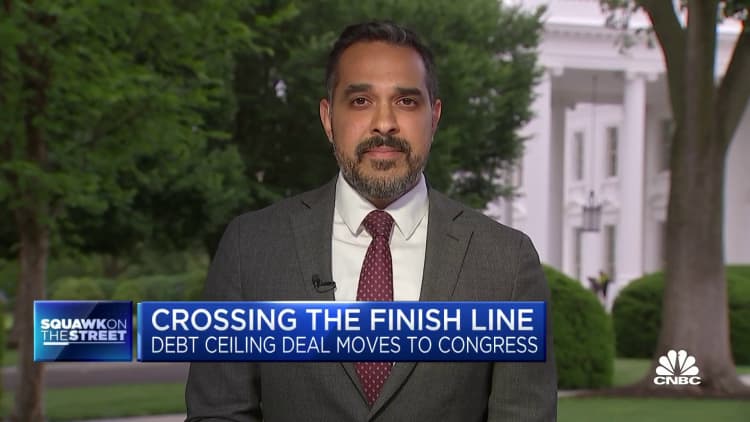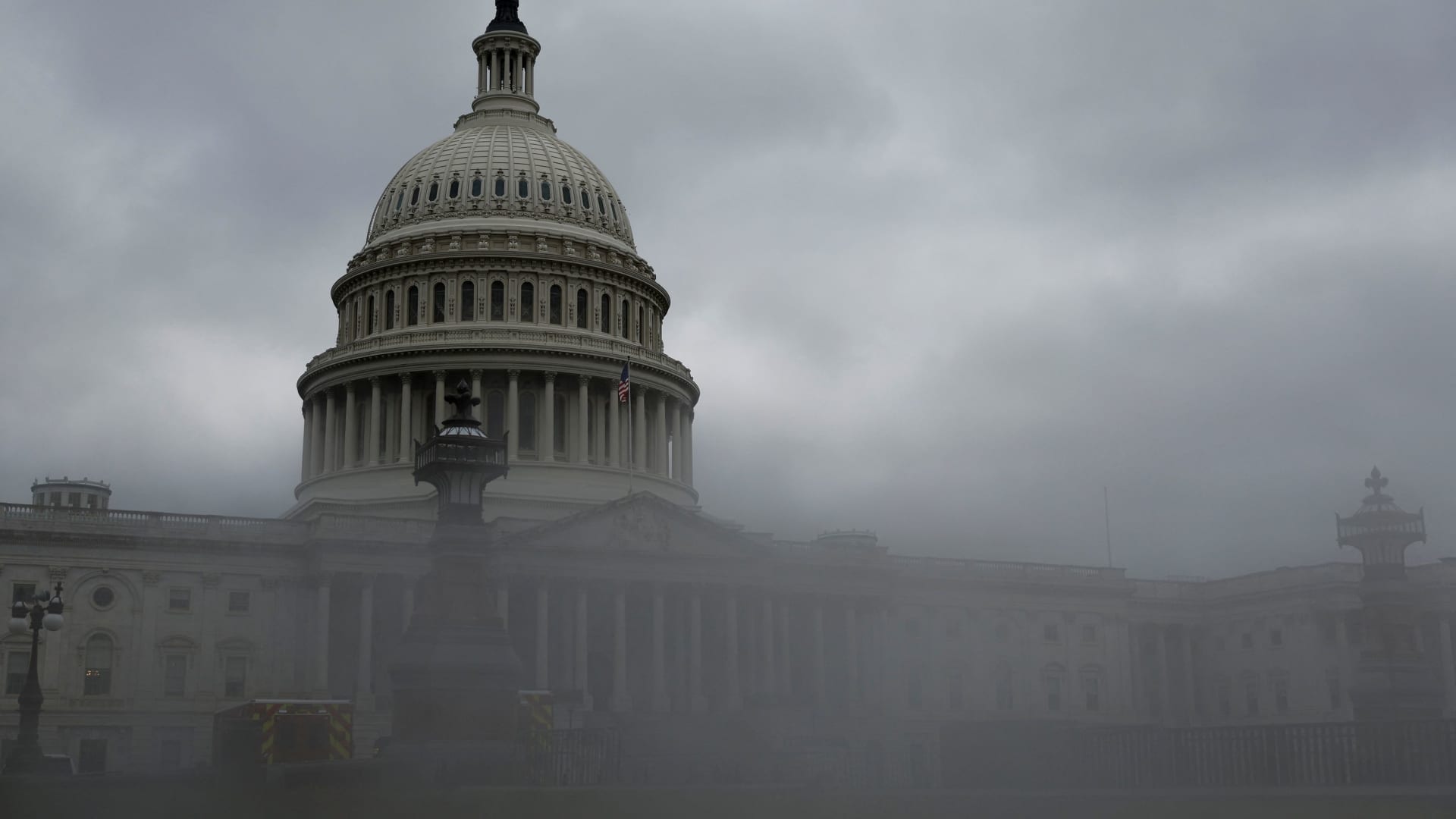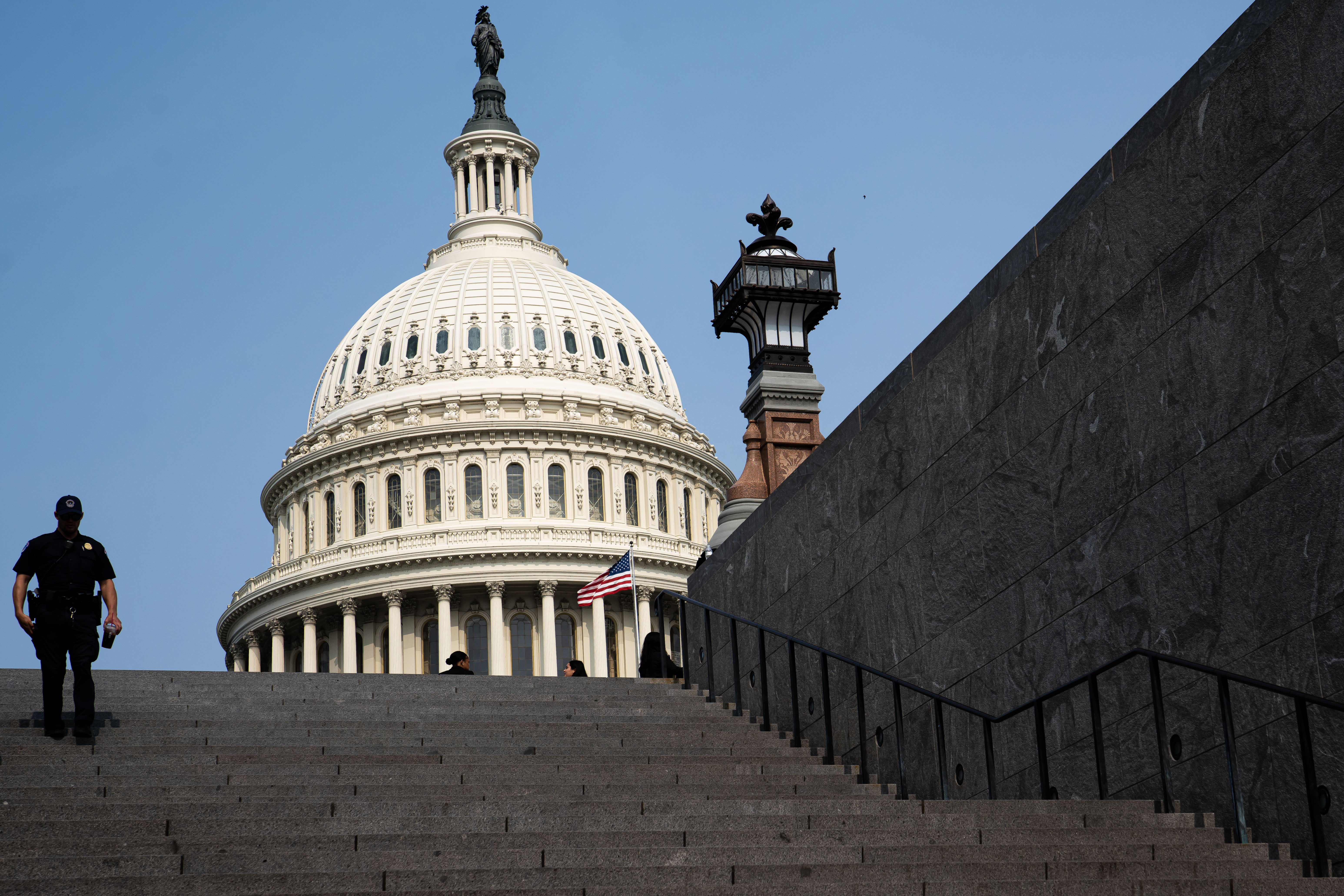
WASHINGTON — The compromise bill to raise the debt ceiling faced its first major test Tuesday in the House Rules Committee, where two of the panel’s nine Republicans said they would oppose bringing it to the House floor for a vote.
But a key swing vote Republican on the committee, Rep. Thomas Massie of Kentucky, signaled late Tuesday afternoon that he was inclined to support the rule that would send the bill to the floor.
“I anticipate voting for this rule,” Massie said about two hours into a marathon committee meeting, noting that this would be contingent on reading the final rule at the end of the meeting.
Massie’s likely support cleared the way for the bill to be approved by seven of the nine Republicans on the committee, enough to send it to the House floor for an expected vote within 24 hours. The panel’s makeup is heavily skewed toward the party in the majority, 9-4, a setup meant to ensure that legislation does not get held up by a few dissenters siding with the minority.
The floor vote on the Fiscal Responsibility Act is planned for around 8:30 p.m. ET Wednesday, according to a tentative House voting schedule.
The legislation is the product of a deal hammered out by House Speaker Kevin McCarthy and President Joe Biden to cap federal baseline spending for two years in exchange for Republican votes to raise the debt ceiling beyond next year’s elections and into 2025.
The bill needs to pass the GOP-majority House and the Democratic-controlled Senate before June 5, when the Treasury Department projects the United States would be unlikely to have enough money to meet its debt obligations.
On Tuesday, a bloc of least 20 conservative Republicans announced they would oppose the compromise deal. They accused McCarthy of caving in to the White House in exchange for “cosmetic” policy tweaks, and not the transformative change they were promised.
A hardline subset of this group railed against the deal on social media and at a press conference outside the Capitol.
“It’s not just that every Republican should vote against it. It’s a little bit more than that. This is a career-defining vote for every Republican,” said GOP Rep. Dan Bishop, N.C.
Several prominent conservative groups also announced opposition to the bill Tuesday, and said they would measure or “score” GOP lawmakers by how they voted on it. The Koch-aligned FreedomWorks group, the anti-tax Club for Growth and the conservative Heritage Foundation all panned the deal.
Over the course of the day, opposition to the bill evolved into a more pointed critique by some in the party of McCarthy’s leadership.
Rep. Chip Roy, R-Texas, speaks during the House Freedom Caucus news conference to oppose the debt limit deal outside of the US Capitol on Monday, May 30, 2023.
Bill Clark | CQ-Roll Call, Inc. | Getty Images
“Speaker McCarthy should pull this bad bill down. We should stop taking this bill up right now,” GOP Rep. Chip Roy of Texas, a member of the Rules Committee, said at a news conference. “And no matter what happens, there’s going to be a reckoning about what just occurred.”
Bishop told reporters that “no one in the Republican conference could have done a worse job” negotiating the agreement than McCarthy did.
Roy and Bishop weren’t the only far-right conservatives who implicitly threatened to unseat McCarthy as House speaker if the debt limit bill passed. But whether they follow through on the threats remains to be seen. Under new rules this year, a single Republican lawmaker can bring a no-confidence vote on McCarthy to the floor.
Some Democrats were also leery of the bill, which contains new work requirements for food stamps, as well as reforms that make it easier to secure energy permits, and cuts to discretionary spending. But progressive leaders in the House stopped short of urging their like-minded members to oppose the bill.
“The Republicans did not win any major concessions on spending,” Rep. Pramila Jayapal, D-Wash., chair of the 100-member Congressional Progressive Caucus, said on a call with reporters Tuesday. “There is no meaningful debt reduction here…what [Republicans] do get is some of their extreme ideological priorities.”
Jayapal acknowledged that the bill’s spending caps would require Congress to scale back funding for some domestic programs. “When it comes time to write these appropriations bills, there will be some very, very difficult choices to make,” she said.
As of Tuesday, the CPC was still deciding whether to “take an official position” on the bill, she said.
The message from the White House was similarly low-key, with an emphasis on all the GOP asks that were excluded from the bill, not which Democratic priorities were included.
“It’s usually a sign of a good compromise if there’s some folks who are a little bit unhappy on each side,” National Economic Council Deputy Director Bharat Ramamurti told CNBC.
“I think the macro economic impact of this deal is likely to be fairly minimal,” he said, adding that the deal was about as good as Biden could have hoped for in a bill that could pass the GOP-controlled House.
The Office of Management and Budget also released a formal statement of policy Tuesday urging House members to support the bill, saying it “reflects a bipartisan compromise to avoid a first-ever default.”
But before the bill could receive a vote in the full House, it needs approval by a majority of the Rules Committee. Ahead of Tuesday’s committee meeting, two Republican members, Roy and Rep. Ralph Norman of South Carolina said they planned to block the bill.
“I’m on Rules Committee,” Norman said Tuesday outside the Capitol. “If we can stop [the bill] there, I will stop it.”
That approach was precisely what Massie, the swing vote, said he objected to. “When people want to express their ideology, the floor of the House on the actual final passage of the bill is the place to do that,” he said, not the committee room.
If the Fiscal Responsibility Act were to stall in the Rules Committee, it would resurrect the imminent threat of a debt default, with less than a week before the deadline.
This is a developing story, please check back for updates.



